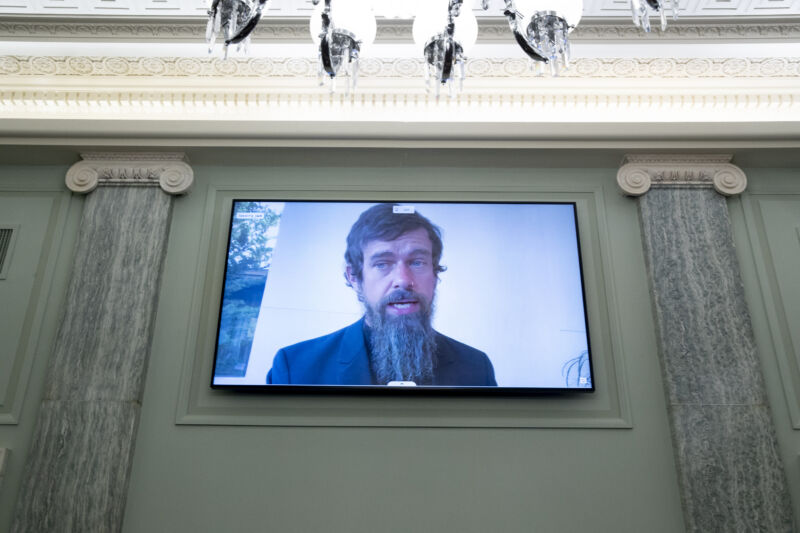Senate hauls Zuckerberg, Dorsey in to hearing to yell at them about tweets

Enlarge / Twitter CEO Jack Dorsey (and his COVID beard?) testifying remotely before the Senate Commerce, Science, and Transportation Committee on October 28, 2020. (credit: Michael Reynolds | Pool | Getty Images)
The Senate Commerce Committee met for a hearing Wednesday meant to probe some of the most seemingly intractable tech questions of our time: is the liability shield granted to tech firms under Section 230 of the Communications Decency Act helpful or harmful, and does it need amending?
Section 230 is a little slice of law with enormously broad implications for the entire Internet and all the communication we do online. At a basic level, it means that if you use an Internet service such as Facebook or YouTube to say something obscene or unlawful, then you, not the Internet service, are the one responsible for having said the thing. The Internet service, meanwhile, has legal immunity from whatever you said. The law also allows space for Internet services to moderate user content how they wish-heavily, lightly, or not at all.
Since Section 230 became law in 1996, the Internet has scaled up from something that perhaps 15 percent of US households could access to something that almost every teenager and adult has in their pocket. Those questions of scale and ubiquity have changed our media and communications landscape, and both Democrats and Republicans alike have questioned what Section 230 should look like going forward. What we do with the law-and where we go from here-is a matter of major import not just for big social media firms such as Facebook, Google, and Twitter, but for the future of every other platform from Reddit to Ars to your favorite cooking blog-and every nascent site, app, and platform yet to come.
Read 17 remaining paragraphs | Comments